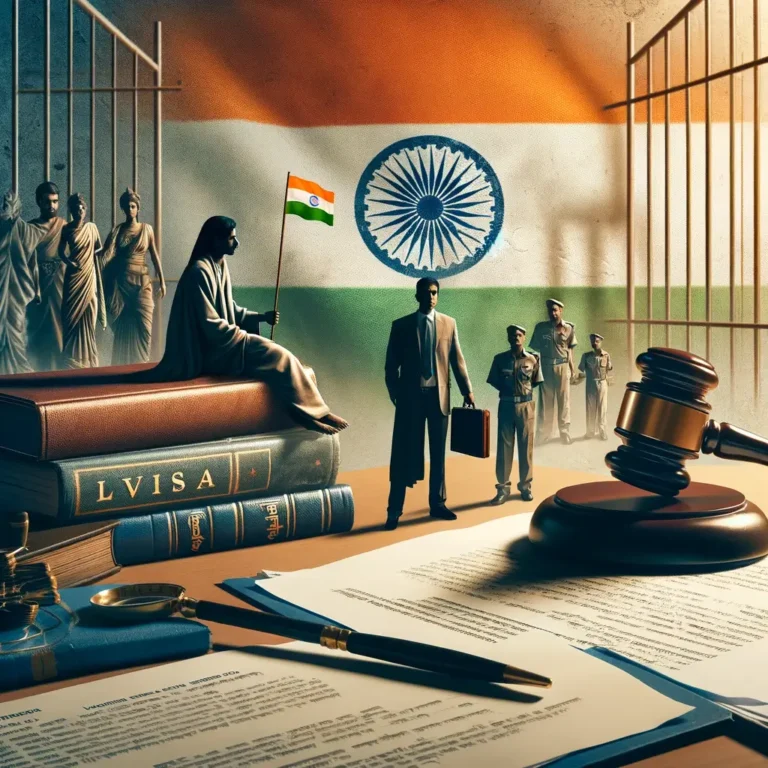In this article we have explained about How to close FIR and How the Quashing of FIR works
Quashing of FIR: A Comprehensive Guide
Introduction to FIR and Its Quashing
What is FIR?
First Information Report (FIR) is a critical document in the Indian legal system, marking the initiation of a criminal investigation. It is the first step in a legal proceeding, where the police record the information about an alleged criminal activity.
The Concept of Quashing FIR
Quashing an FIR refers to the legal process of nullifying or dismissing it. This action is typically pursued in a High Court under Section 482 of the Criminal Procedure Code (CrPC). It is a remedy for those who believe that the FIR filed against them is frivolous, baseless, or motivated by malice.
Legal Grounds for Quashing FIR
Misuse of Legal Process
One of the primary reasons for quashing an FIR is the misuse of the legal process. This includes instances where the FIR is lodged with ulterior motives or to harass an individual.
Lack of Prima Facie Evidence
The absence of prima facie (sufficient to establish a fact or raise a presumption unless disproved) evidence can be a ground for quashing. If the allegations in the FIR do not constitute a cognizable offense, it may be quashed.
The Process of Quashing an FIR
Filing a Petition in High Court
To quash an FIR, a petition must be filed in the respective High Court. This petition should articulate the reasons why the FIR is baseless or unjust.
Court’s Evaluation
The High Court evaluates the FIR, the nature of the allegations, and other relevant documents. It exercises its power under Section 482 of CrPC if it deems the FIR to be an abuse of the process of law.
Impact of Quashing FIR
Legal Relief to the Accused
Quashing an FIR provides significant relief to the accused, particularly in cases of false accusations. It prevents unnecessary legal hassles and potential damage to reputation.
Upholding Justice
Quashing of baseless FIRs upholds the integrity of the justice system. It ensures that the law is not used as a tool for personal vendettas.
Conclusion: The Significance of Quashing FIR
A Vital Legal Remedy
Quashing of an FIR is an essential legal remedy, protecting individuals from wrongful accusations and misuse of the legal process.
Ensuring Fair Play in the Legal System
It plays a pivotal role in maintaining fairness and objectivity in the legal system, ensuring that justice prevails.
FAQ (FREQUENTLY ASKED QUESTIONS)
1. What is FIR?
FIR stands for First Information Report. It is a document prepared by the police when they receive information about a cognizable offense.
2. What does quashing of an FIR mean?
Quashing an FIR means legally nullifying it, typically by a High Court, making the FIR non-actionable.
3. Under which section can FIR be quashed?
FIR can be quashed under Section 482 of the Criminal Procedure Code (CrPC).
4. Who can file for quashing of an FIR?
Anyone who is implicated in an FIR and believes it to be false, baseless, or malicious can file for its quashing.
5. Can FIR be quashed on the basis of a settlement?
Yes, FIRs, especially in cases of a personal nature, can be quashed if both parties reach an amicable settlement.
6. Is High Court the only court that can quash an FIR?
Yes, only the High Courts have the power to quash FIRs under Section 482 of CrPC.
7. What is the role of the Supreme Court in quashing FIRs?
The Supreme Court can quash FIRs, but it is usually done in rare and exceptional cases.
8. Can FIR be quashed after charge sheet is filed?
Yes, an FIR can be quashed even after the filing of a charge sheet if there are valid grounds.
9. Are there any time limits to file for quashing an FIR?
There is no specific time limit, but it’s advisable to file for quashing at the earliest to avoid legal complications.
10. What are common grounds for quashing an FIR?
Common grounds include lack of evidence, abuse of legal process, and cases where continuation would be an injustice.
11. Is a lawyer necessary for quashing an FIR?
While not mandatory, it is highly recommended to engage a lawyer for legal expertise and proper representation.
12. Can an FIR be quashed on the basis of lack of evidence?
Yes, if there is insufficient evidence to support the allegations, an FIR can be quashed.
13. What happens after an FIR is quashed?
Once quashed, the FIR is treated as null and void, and no further legal action can be taken on it.
14. Can a quashed FIR be revived?
Generally, a quashed FIR cannot be revived. However, in exceptional cases, based on new evidence, it might be reconsidered.
15. Does quashing of FIR affect the criminal record?
Once an FIR is quashed, it should not negatively impact the individual’s criminal record.
16. Can FIR be quashed on the grounds of compromise between parties?
Yes, especially in private disputes, FIRs can be quashed if there is a genuine compromise between parties.
17. What is the impact of quashing an FIR on ongoing investigations?
Quashing an FIR halts any ongoing investigations related to that FIR.
18. Can a government official file for quashing of an FIR against them?
Yes, government officials can also file for quashing of FIRs if they believe them to be unjust.
19. Is it possible to quash an FIR without going to court?
No, quashing an FIR requires a legal proceeding in a High Court.
20. Can an FIR be quashed on technical grounds?
Yes, FIRs can be quashed if there are technical flaws or procedural lapses in the filing process.
21. What is the role of the police in the quashing of an FIR?
The police do not play a direct role in the quashing process, which is a judicial function.
22. How long does it take to quash an FIR?
The time varies depending on the complexity of the case and the court’s schedule.
23. Can a non-cognizable offense FIR be quashed?
Yes, an FIR related to a non-cognizable offense can also be quashed.
24. Is the complainant’s consent necessary for quashing an FIR?
In cases of compromise, the complainant’s consent is usuallyrequired.
25. What if the High Court refuses to quash the FIR?
If the High Court refuses to quash the FIR, one can approach the Supreme Court in exceptional cases.
26. Does quashing of FIR absolve the accused of all charges?
Yes, quashing an FIR absolves the accused from the charges mentioned in that specific FIR.
27. Can FIR be quashed based on contradictory statements?
Yes, if the statements in the FIR are contradictory or implausible, it can be a ground for quashing.
28. Is it necessary to appear in court for quashing an FIR?
The presence of the petitioner may be required in court, as per the court’s direction.
29. Can a partially quashed FIR still be actionable?
Yes, if the FIR is partially quashed, the remaining part can still be actionable.
30. What are the costs involved in quashing an FIR?
Costs include legal fees and court-related expenses, which vary based on case complexity and lawyer’s fees.
Sources:-
















